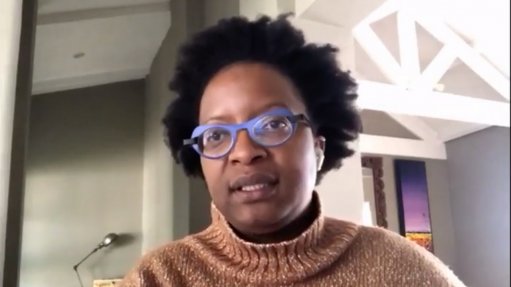
Mamokete Lijane
South Africa is grappling with unsustainable levels of poverty and inequality and it has not appropriately funded poverty alleviation programmes in the past. Therefore, the question remains how to fund the necessary interventions.
This was indicated by speakers during a webinar hosted by the Academy of Science of South Africa and the Bureau for Economic Research, at Stellenbosch University (SU), on June 10.
High Court of Cape Town Judge Dennis Davis highlighted that poverty and inequality had been persistent and increasing long before the pandemic, but the pandemic has exacerbated the situation.
He emphasised that if the economy were to grow at a rate of 4% to 5% a year, programmes that deal with alleviating poverty could be funded.
Davis said, however, that there was a limited possibility that tax increases could fund the required programmes.
He also mentioned several issues surrounding tax collection, including corruption, the stark difference between the nominal and effective rate of tax and considerable erosions from value-added-tax flow.
Therefore, this is a not an ideal avenue with which to fund these programmes, he noted.
Instead, he emphasised that the focus should be on how the country would generate a pattern of growth that would allow for greater sums of money to be collected, notwithstanding that it would never get 100% of what was budgeted for, as some form of tax evasion would always occur.
Coming from a different perspective in terms of taxes, University of the Witwatersrand Institute for Economic Justice’s Gilead Isaacs said there were options for tax increases, which would not solve the overall problem of tax collection but would offer increased revenue.
He said a reduction in corporate tax would be incorrect, given that globally, the discussions are centred on increasing this. He also highlighted a recent European Union study which showed that a proposed new global minimum tax rate could raise about R50-billion a year for South Africa.
Isaacs also indicated options to be: removing ineffective tax breaks for corporates, taxing harmful behaviour, and dedicating significant energy to fixing tax administration.
Meanwhile, SU’s Ingrid Woolard said that while cash transfers were important, and essential for short-term poverty relief, they are only one part of a capable and functional State and, therefore, policies aimed at poverty alleviation must not only focus on cash transfers.
She highlighted that when considering incremental tax increases, such as the ones Isaacs alluded to, careful consideration must be paid to the fact that these could amount to large changes for individual taxpayers, despite being small changes for each item.
Therefore, the feasibility of imposing several tax changes at once must be considered and these must be considered pragmatically, she emphasised.